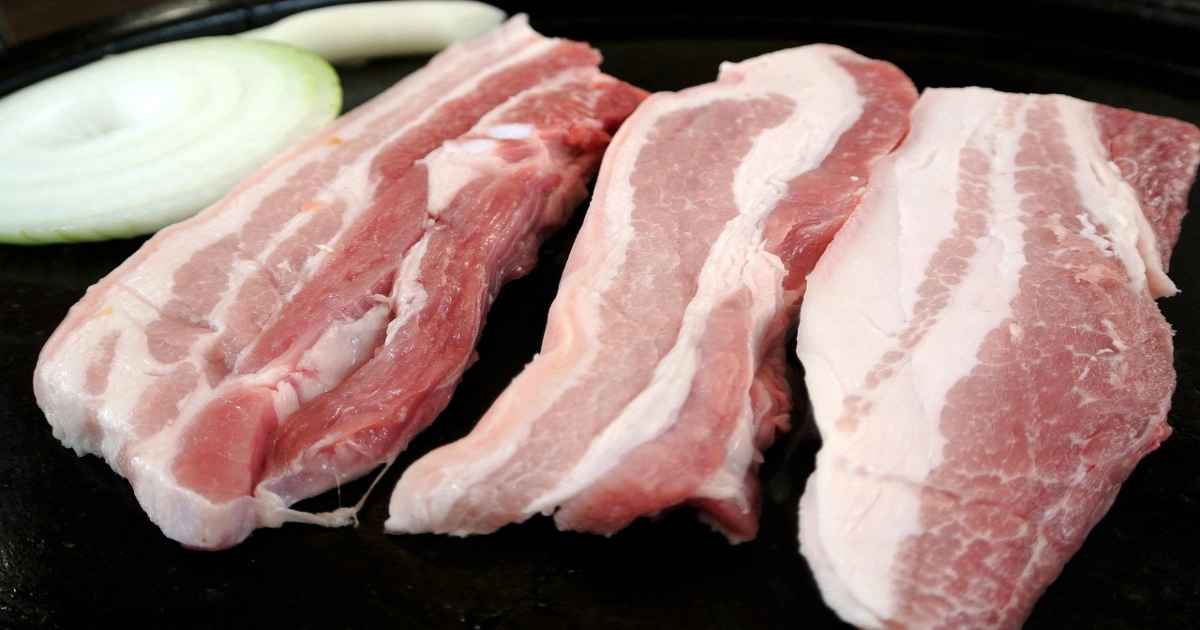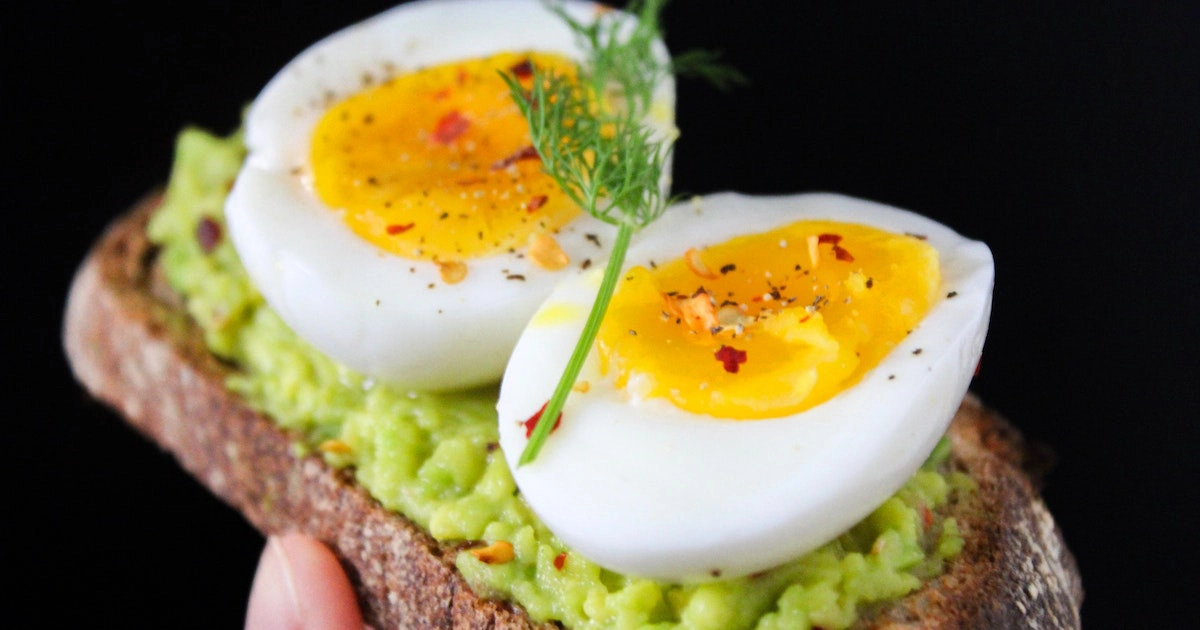You, as a conscientious dog owner, just want the best for your pet. Commercial dog food might seem like the easiest and most popular choice, but it’s not always the best. Many pet owners are turning towards alternative diets to meet their dog’s nutritional needs and cater to their specific dietary requirements. You are interested in giving your dog something other than dog food, you have a lot of choices.
In this article, we’ll explore various options for feeding your canine companion without relying on traditional kibble or canned food.
Can I Feed My Dog Real Food Instead Of Dog Food?
As an owner of a pet, you want to ensure that your companion receives the best nutrition possible. With so many commercial dog food choices on the market, it can be challenging and confusing to choose the best one.
Fortunately, there are alternatives to traditional dog food that you can feed your pup. Whether it’s for health reasons or personal preference, knowing what other foods you can offer your dog will help keep them happy and healthy. In this article, we’ll explore some of the best options for feeding your furry companion outside of regular commercial dog food.
What Can Be Used As Dog Food?
Many options can serve as healthy and nutritious alternatives to commercial dog food. One option is home-cooked meals, where you can prepare balanced meals using lean proteins like chicken, beef, or fish combined with vegetables and whole grains. Another alternative is a raw food diet consisting of uncooked meats, bones, and organs, which some dog owners believe closely mimics a dog’s ancestral diet.
Additionally, fresh foods can be incorporated into your dog’s diet, such as fruits and vegetables, that are safe and beneficial for them. There are also high-quality commercial alternatives available, including freeze-dried or dehydrated dog food, as well as natural and organic dog food brands. Lastly, supplements can be used to address specific nutritional needs, and treats can provide occasional rewards or aid in training. It’s crucial to consider your dog’s individual needs, consult with a veterinarian, and ensure a balanced and appropriate diet for its overall health and well-being.
Home-Cooked Meals: How To Make Balanced Meals
Home-cooked meals for dogs offer a wonderful opportunity to provide them with balanced and nutritious meals tailored to their specific needs. When preparing home-cooked meals for your furry friend, it’s essential to ensure a balanced diet. Start by incorporating lean proteins such as chicken, turkey, or fish, which provide essential amino acids. Supplement these proteins with a variety of vegetables like carrots, sweet potatoes, and leafy greens to provide vitamins and fibre. Including whole grains like brown rice or quinoa can add healthy carbohydrates. Consultation with a veterinarian is vital to determine the appropriate portion sizes and to ensure that all necessary nutrients are being met. With careful planning and consideration, home-cooked meals can offer a wholesome and balanced alternative to traditional dog food, promoting your dog’s overall health and well-being.
What Are The Healthiest Foods For Dogs?

When it comes to providing the healthiest foods for dogs, there are several options to consider. Lean meats and poultry, such as chicken, turkey, and fish, are excellent sources of essential amino acids that promote muscle growth and general well-being. Vegetables such as carrots, spinach, and broccoli can provide vitamins, minerals, and fibre to aid digestion and strengthen the immune system. Additionally, fruits like blueberries and apples can offer antioxidants and beneficial nutrients. Whole grain cereals such as brown rice and quinoa can provide energy and essential nutrients while being simpler for some dogs to digest. It’s important to note that specific dietary needs may vary depending on the dog’s age, breed, and health condition. So, discussing with a veterinarian is always recommended to determine the healthiest food options for your furry companion.
Is Freeze-Dried Raw Food as Good as Raw?
The freeze-drying process preserves the nutritional integrity of the ingredients, maintaining the natural enzymes, vitamins, and minerals found in raw food. It offers convenience, as it can be stored without refrigeration and is easy to portion and serve. While freeze-dried raw food may not provide the exact same benefits as fresh raw food, it still offers a balanced and nutritious diet. However, it’s important to choose a reputable brand that uses high-quality ingredients and follows strict quality control measures. Consultation with a veterinarian or pet nutritionist can help you determine whether freeze-dried raw food is suitable for your dog’s unique dietary requirements.
Can Dogs Eat Rice?
Yes, dogs can eat rice. Rice is generally considered safe for dogs and is often used as a bland diet option for dogs with upset stomachs or digestive issues. It is an excellent source of carbs and can provide energy to your furry friend. Plain, cooked rice without any seasonings or additives is the best option for dogs. It is easily digestible and can help alleviate gastrointestinal problems. But it’s important to remember that rice should only be given in small amounts as part of a healthy diet. Any changes to your dog’s diet should be talked over with your vet to make sure they are right for their needs.
Can Dogs Drink Milk?
Some dogs can handle milk, but you should know that not all dogs can digest it well. Lactase is an enzyme that dogs and people both make. It helps break down lactose, the sugar in milk. However, as dogs mature, their production of lactase typically decreases, making it more challenging for them to digest lactose. Consuming milk can lead to digestive issues such as diarrhoea, gas, and stomach upset in lactose-intolerant dogs. It’s better to be careful than sorry, so don’t give your dog milk unless you know for sure they can handle it. If you are considering giving your dog milk or any dairy products, Talk to your vet and find out if it is healthy and appropriate for your dog’s specific needs.
Can Dogs Eat Bread?
Bread is not dangerous for dogs, but they shouldn’t eat it every day. The carbohydrates and sugars in bread can cause weight gain, digestive issues, and even dental problems. If you do give your dog bread, make sure it’s plain and doesn’t have anything added, like garlic or nuts, that could hurt your dog.
Instead of feeding your dog bread or other human foods. It’s important to provide them with a balanced and nutritious diet specifically designed for their needs. Complete meals are available from commercial dog food manufacturers. Which are formulated with the proper proportions of protein, carbohydrates, fibre, vitamins, and minerals. Alternatively, you can seek advice from a veterinarian regarding the preparation of homemade dishes that satisfy your dog’s nutritional needs. It is essential that you avoid feeding your dog human foods without first consulting a veterinarian, as many prevalent foods are toxic to dogs.
Can Dogs Eat Biscuits?
Dogs can eat biscuits, but it depends on the type of biscuit. Some human biscuits contain excessive levels of sugar and other ingredients unfit for dogs. Dog-specific biscuits or those made with natural ingredients such as whole cereals, fruits, and vegetables are preferable. These types of biscuits provide essential nutrients and fibre, which can aid in digestion.
However, it is important to note that biscuits should not replace a dog’s regular meals. Dogs need a balanced diet that includes protein, carbohydrates, fats, vitamins, and minerals. If you are looking for alternatives to commercial dog food. Consider feeding your dog homemade meals consisting of lean meats such as chicken or turkey along with vegetables like carrots or green beans.
In addition, consult with your veterinarian before making significant changes to your dog’s diet. Your vet can recommend specific foods based on your dog’s age, weight, activity level and any health issues they may have. Overall, while dogs can enjoy the occasional biscuit treat in moderation, a well-balanced diet is crucial to their overall health and well-being.
Can Dogs Eat Potatoes?
Potatoes are fine for dogs to eat as long as they are cooked and given to them plainly without any spices or ingredients added. But you shouldn’t feed your dog only potatoes because they don’t have the important nutrients that dogs need. Instead, consider incorporating other types of food such as lean meats like chicken or turkey, vegetables like carrots or green beans, and fruits like blueberries or bananas, into your dog’s diet.
It’s critical to remember that you shouldn’t give your dog certain things. These include chocolate, onions, grapes and raisins, avocados, and anything containing caffeine. These foods can cause serious health issues such as kidney failure or toxicity in dogs.
Check that your dog gets all the nutrition they need. Talk to a vet before making any big changes to their food. A vet can provide guidance on what specific foods would be beneficial for your individual dog based on their age, breed, weight and overall health.
Can Dogs Eat Boiled Eggs?

Boiled eggs are a fantastic source of protein. In fact, many veterinarians recommend feeding boiled eggs to dogs as a healthy snack or meal supplement. Eggs contain essential amino acids that are necessary for building and repairing muscles and tissues.
However, there is one caveat: you should never feed your dog raw eggs. Salmonella germs, which can cause food poisoning in both people and animals, maybe in raw eggs. By boiling the egg, you kill any germs that might be in it, making it safe for your pet to eat.
If you’re looking for other alternatives to traditional dog food, there are plenty of options available. Chicken or beef that has been cooked can be a source of energy for your dog. You could also consider feeding them cooked vegetables like carrots or green beans as a healthy snack. Just be sure not to give them anything that could hurt them. Please talk with your vet before giving them anything new to eat.
Can Dogs Eat Tomato?
Dogs are known to be quite fond of human food, but their digestive systems are not always equipped to handle all kinds of foods. Tomatoes contain solanine and alpha-tomatine, which can cause digestive problems if consumed in large quantities. Most of these chemicals are found in the green areas of the tomato plants, like its stems and leaves. It’s essential to remove these parts before giving your dog any tomato-based food.
If you plan on feeding your dog tomatoes. It’s best to give them ripe ones as they have lower levels of solanine and alpha-tomatine. Additionally, avoid giving them canned tomatoes or dishes that include sauces with added sugar or salt. As these components can be harmful to dogs.
While dogs can eat tomatoes without adverse effects when given in moderation. It’s crucial to prepare them carefully and ensure they don’t consume any green parts of the plant or canned products containing added sugars/salt. If you’re looking for an alternative food source for your furry friend besides commercial kibble. Consult with a veterinarian first for proper guidance on what foods will meet their nutritional needs while keeping them healthy and happy!
Is Carrot Good For Dogs?
As a dog owner, one might wonder about the nutritional value of different human food for their furry friends. One such food item is carrots. Carrots contain low calories but are high in fibre and minerals like potassium and vitamin A. These nutrients can help maintain healthy eyesight, skin, coat, and digestion in dogs.
Feeding carrots to dogs as treats or adding them to their meals is a healthy option compared to processed dog foods that may contain artificial preservatives and fillers. However, it’s essential to introduce new foods gradually into their diet and monitor any allergic reactions or digestive problems.
Other nutritious human foods that dogs can eat include lean meat, eggs, pumpkin puree, sweet potato, blueberries, apples (without seeds), green beans (cooked without seasoning), peanut butter (without xylitol), and brown rice. It’s crucial to consult with a veterinarian before making any significant changes in your dog’s diet or if you notice any health concerns.
Can I Feed My Dog Canned Tuna?
Canned tuna is a widespread human food that several dog owners may be tempted to share with their furry friends. However, it’s important to note that feeding your dog canned tuna should be done in moderation and with caution. Tuna have high mercury, which can be harmful if consumed in large amounts over time. It’s best to limit your dog’s intake of canned tuna and only give them small portions as an occasional treat.
If you’re looking for alternative foods to feed your dog instead of traditional dog food, there are several options available. Cooked chicken or turkey without the skin and bones is a great source of protein for dogs. You can feed your dog cooked vegetables such as sweet potatoes, carrots, and green beans. Additionally, plain yoghurt or cottage cheese can be added to their meals for extra calcium and protein.
It’s important to remember that any changes in your dog’s diet should be made gradually over a period of several days to avoid upsetting their digestive system. Discuss with your veterinarian before modifying your pet’s diet or feeding routine.
What Canned Food Can Dogs Eat?
Canned food can be an easy and cheap way to feed your dog. However, not all canned foods are safe for dogs to eat. Onions and garlic, which are often found in canned foods for people, can be harmful to dogs. Additionally, some canned foods may contain excess salt or sugar. Canned meat such as chicken or beef can provide protein for your dog’s diet. Vegetables like green beans or carrots can also be added as a nutritious supplement.
It is key to read the label and ingredients list before giving any canned food to your dog. Some brands specifically make dog-friendly canned food with the right balance of nutrients and no harmful additives. Although, it is best to talk with your veterinarian about what specific type of food would be best suited for your individual pet’s needs.
Can Dogs Eat Honey?
Yes, dogs can eat honey in moderation. Honey is a natural sweetener and has some potential health benefits for dogs. It contains antioxidants and may have antibacterial properties. However, it’s important to note that honey is high in sugar and should only be provided to dogs in tiny amounts as an occasional treat. Excess honey can lead to weight gain or digestive issues. Also, honey shouldn’t be given to puppies under one year old because it could make them sick with botulism. As with any new food, honey should be given to your dog slowly, and you should watch for any bad effects. If you’re worried about or have questions about giving honey to your dog, talk to your vet to get personalized help.
What Foods Should Dog Avoid?
- Chocolate: Chocolate has theobromine and caffeine, both of which are dangerous for dogs to eat. It can cause symptoms like vomiting, diarrhoea, increased heart rate, tremors, and even seizures.
- Grapes and raisins: Grapes and raisins can make a dog’s kidneys fail. Even small amounts can be harmful and lead to symptoms such as vomiting, lethargy, and decreased appetite.
- Onions and garlic: Onions and garlic contain compounds that can damage a dog’s red blood cells, leading to anaemia. Symptoms may include weakness, vomiting, and breathlessness.
- Avocado: Avocados contain persin, which is toxic to dogs in large quantities. It can cause gastrointestinal upset, vomiting, and potentially more severe symptoms.
- Alcohol: Alcohol is highly toxic to dogs. Even small amounts can cause alcohol poisoning, resulting in symptoms such as disorientation, depression, breathing problem, and, in severe cases, coma or death.
- Caffeine: Caffeine, found in coffee, tea, energy drinks, and certain medications, is dangerous for dogs. It can cause restlessness, rapid breathing, increased heart rate, tremors, and even collapse.
- Xylitol: Xylitol is an alternative to sugar that can be found in gum, sweets, and baked goods that don’t have sugar. Ingesting xylitol can lead to a rapid drop in blood sugar levels in dogs, causing weakness, seizures, and liver failure.
- Macadamia nuts: Macadamia nuts are dangerous to dogs and can make them weak, throw up, shake, and get a high body temperature. It’s important to keep all nuts, including macadamia nuts, away from dogs.
- Raw or undercooked meat and bones: Raw meat and bones can carry bacteria such as Salmonella or E. coli, which can cause digestive issues and other health problems. Cooked bones can splinter and cause choking hazards or damage the digestive tract.
- High-fat foods: Foods high in fat, such as fatty cuts of meat, fried foods, and buttery dishes, can lead to pancreatitis in dogs.
If you have any worries about certain foods or your dog accidentally eats something they shouldn’t, visit your veterinarian. Keeping your dog’s diet balanced and free from potentially harmful foods is essential for their well-being.
Conclusion
In conclusion, there are many alternatives to feeding your dog commercial dog food. But you should investigate and speak with a veterinarian before making any changes. Some human foods may be harmful or toxic for dogs, and certain nutritional requirements must be met in order to ensure your pup’s overall health and well-being.
Some viable alternatives include homemade meals using fresh ingredients such as vegetables, lean meats, and grains. Raw diets have also become increasingly popular but require careful preparation and handling. Additionally, there are numerous brands of high-quality commercial dog food that utilize natural ingredients and avoid fillers or additives. Ultimately, finding the right diet for your furry friend may take some trial and error but can lead to improved energy levels, digestion, and overall happiness.
FAQ
